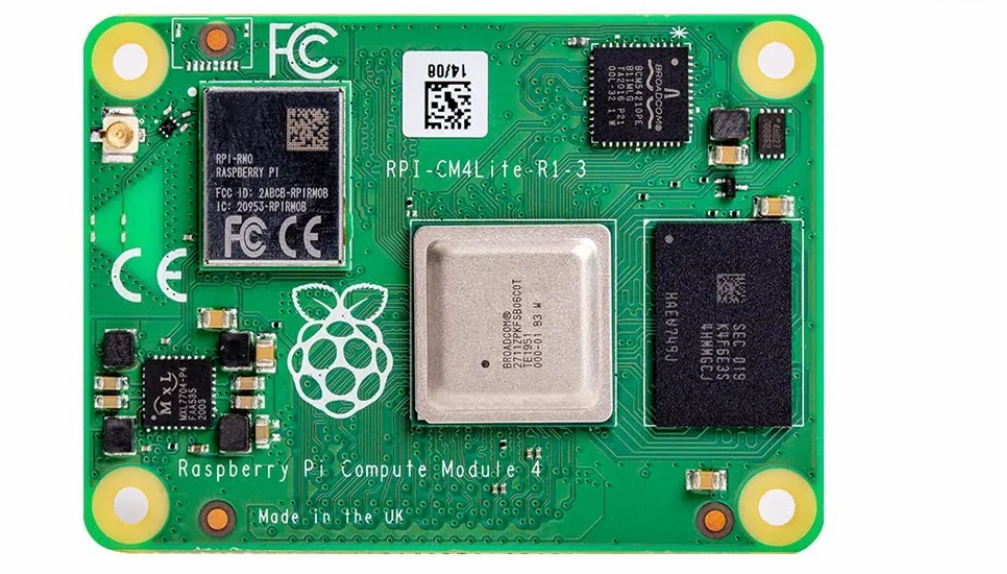
The Raspberry Pi is a series of small, affordable single-board computers (SBCs) developed by the Raspberry Pi Foundation, a UK-based charity, with the primary goal of promoting computer science education in schools and beyond. Since its first release in 2012, Raspberry Pi has evolved into a versatile platform used by hobbyists, educators, developers, and industrial users worldwide, thanks to its low cost, compact size, and broad compatibility with software and hardware.
Over the years, the Raspberry Pi lineup has expanded to include models tailored for different use cases:
-
Raspberry Pi 4 Model B: A flagship model featuring a 1.5GHz 64-bit quad-core Arm Cortex-A72 processor, up to 8GB of LPDDR4 RAM, dual micro-HDMI ports (supporting 4K resolution), Gigabit Ethernet, Wi-Fi 5, Bluetooth 5.0, and USB 3.0 ports. It is ideal for desktop computing, media centers, and advanced projects.
-
Raspberry Pi 3 Model B+: Equipped with a 1.4GHz 64-bit quad-core Arm Cortex-A53 processor, 1GB RAM, and improved wireless connectivity, suitable for IoT projects and home automation.
-
Raspberry Pi Zero Series: Ultra-compact and low-cost models (e.g., Zero W, Zero 2 W) with smaller form factors, designed for portable devices, wearables, and space-constrained applications. The Zero 2 W adds a quad-core processor and Wi-Fi/Bluetooth for enhanced performance.
-
Raspberry Pi Pico: A microcontroller board (not a full SBC) based on the RP2040 chip, focused on embedded systems and low-power projects, with GPIO pins and support for C/C++ and MicroPython.
Raspberry Pi runs a variety of operating systems, with Raspberry Pi OS (formerly Raspbian) being the official choice—a Debian-based Linux distribution optimized for the hardware. Other supported OSes include Ubuntu, Kali Linux, RetroPie (for retro gaming), and Windows 10 IoT Core. This flexibility allows users to adapt the board for tasks ranging from web servers and media streaming to machine learning and robotics.
The Raspberry Pi’s versatility enables its use in diverse fields:
-
Education: Used in schools to teach programming (Python, Scratch), electronics, and robotics, with educational kits and projects designed for students of all ages.
-
Hobby Projects: Popular for DIY creations such as home media centers (Kodi), smart mirrors, weather stations, and gaming emulators.
-
IoT and Automation: Deployed in smart home systems, environmental sensors, and industrial monitoring due to its low power consumption and support for protocols like MQTT and Wi-Fi.
-
Professional Use: Utilized in industrial automation, digital signage, edge computing, and prototyping for product development, offering a cost-effective alternative to traditional computing hardware.
Raspberry Pi’s GPIO (General Purpose Input/Output) pins, along with standardized interfaces (HDMI, USB, Ethernet), allow seamless integration with a wide range of peripherals and add-ons:
-
HATs (Hardware Attached on Top): Official expansion boards for specific functions, such as motor controllers, sensors, and displays.
-
Cameras: Compatible with Raspberry Pi Camera Modules (v1, v2, HQ) for photography, video streaming, and computer vision projects.
-
Storage: Supports microSD cards for primary storage, with options for external hard drives or network-attached storage (NAS) for larger datasets.
The Raspberry Pi has fostered a global community of developers, educators, and enthusiasts, contributing to a vast library of tutorials, forums, and open-source projects. The Raspberry Pi Foundation provides extensive documentation, learning resources, and grants to support educational initiatives, ensuring ongoing accessibility and innovation.
Since its launch, Raspberry Pi has sold millions of units, democratizing access to computing and empowering users to turn ideas into functional projects. Its influence extends beyond education, driving innovation in IoT, maker culture, and low-cost computing solutions, solidifying its position as a cornerstone of the global tech community.
Raspberry Pi, single-board computer, SBC, Raspberry Pi 4, Raspberry Pi Zero, IoT projects, education technology, Python programming, GPIO, open-source hardware, embedded systems, media center, retro gaming.
